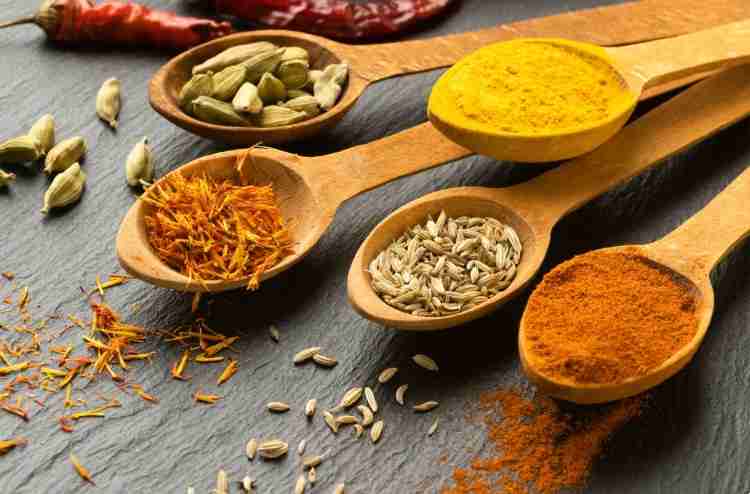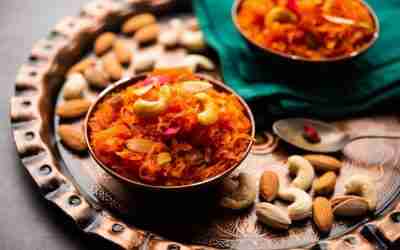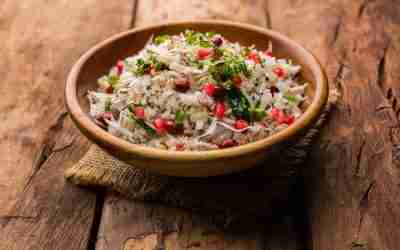Spices have been a part of Indian cuisine since the beginning of time. From the humblest masala chai to the most elaborate recipes like rogan josh, we Indians add spices to everything we cook. While spices elevate the taste of the food they are added to, this is not the only reason they are used in Indian cuisine. Indian spices health benefits are also known such as medicinal properties and ability to preserve food. Read on as I explain to you Indian spices health benefits –
Turmeric (Haldi)
Turmeric is the quintessential Indian spice that is used in almost every dish. Turmeric is a root that looks very similar to ginger. It is dried and ground to form the golden powder we use in our curries.
Turmeric is rich in curcumin, which helps prevent heart disease, cancer, and Alzheimer’s. Its antibacterial and antioxidant properties help in the digestion of food and help in the treatment of arthritis.
Black pepper (Kali Mirch)
Black pepper is often called the king of all spices. Its sharp, pungent flavour can make any dish delicious.
Black pepper helps to boost metabolism, which improves digestion. It is also known for its anti-microbial and anti-cancer properties.
Cumin (Jeera)
Cumin adds an earthy and peppery flavour to the dishes. Jeera is a rich source of iron and also contains calcium and magnesium.
It helps aid digestion, treats insomnia and anemia, and helps fight off colds.
Carom seeds (Ajwain)
Ajwain is bitter and pungent and is often added to curries and pickles. Ajwain is rich in fiber, minerals, vitamins, and antioxidants.
Ajwain water is commonly used in Indian households to relieve stomach pain and other digestive issues. Ajwain seeds help treat coughs and colds and prevent the risk of kidney stones.
Cardamom (Elaichi)
Cardomom is one of the most expensive spices and has a unique sweet flavour. It is added to sweet as well as savoury dishes in Indian cuisine.
Its anti-inflammatory properties help to soothe the mucous membrane of the lungs, so it can help in reducing coughing and wheezing. It is an appetite stimulator that helps combat gas, nausea, and heartburn.
Coriander (Dhania powder)
Dhania powder is made by roasting and grinding the seeds of the coriander plant. It is one of the most commonly used spices from the Indian spice box.
The health benefits of dhania powder include improving digestion, reducing inflammation, lowering blood sugar, and fighting UTIs.
Indian Cloves (Laung)
Cloves bring a distinctive warm flavour to curries, chutneys, and desserts. It is also ground and added to garam masala.
Cloves have a special place in Ayurvedic medicine: the antioxidant, antiseptic and antibacterial properties of clove help to treat toothache, stomach problems, and insomnia.
Cinnamon (Dalchini)
Dalchini or cinnamon bark is one of the essential ingredients of spice mixes like garam masala and chai masala. The cinnamaldehyde oil present in dalchini gives it its distinctive taste and aroma.
Dalchini helps treat diabetes and high cholesterol, and it also improves digestion. The oil derived from cinnamon is used to treat tooth decay and gum disease.
Mustard seeds (Sarson or Rai)
Mustard seeds are black or dark brown and have a faint spicy aroma. These seeds are used in tempering, which is added at the end of cooking the dish. When added to hot ghee, they crackle and pop and give a nutty flavour.
Mustard seeds are rich in vitamin B1, phosphorus, manganese, and omega-3 fatty acids. They help boost the immune system, relieve asthma, and treat the common cold.
Asafoetida (Hing)
Hing is the dried gum obtained from the roots of the Ferula plants. This gum is then dried and ground to form a coarse yellow powder. It has a robust pungent odor due to the presence of sulfur compounds.
According to Ayurveda, hing helps to treat gas, bloating, and intestinal worms.
Bay leaf (Tej Patta)
Though tej patta has a sharp and bitter taste, it adds a noticeable fragrance to the food. It is often added to biryani and rice.
Taj patta is rich in vitam in B and C. It has anti-diabetic and anti-aging properties and also helps boost immunity.
Fenugreek (Methi)
Fresh methi and its seeds are an integral part of Indian cuisine. These seeds are used whole and also crushed and used with other spices.
Methi is known to suppress appetite, improve digestion and increase energy. It is also suitable for lactating mothers.
Final thoughts
These are some of the most common spices used in Indian kitchens. These spices give Indian cuisine a unique flavor and keep you healthy and energetic. The home chefs at Mealawe believe in the traditional Indian wisdom of keeping the body and soul healthy with the goodness of food. Order delicious food from Mealawe and enjoy the fabulous flavours and beneficial health properties of all the unique spices in healthy homemade food.




